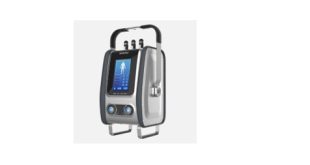And when it does you’re prepared!
Of course, when your heating system decides to stop working it’s going to be the coldest day of the year, right?
Or is it always when you’re out of the house and someone else has to deal with the problem? The average cost of HVAC repairs is $351. However, they could cost anything from $243 to $1,567.If your heating system is experiencing issues, it might be time to consult a professional. Regular maintenance can prevent many common problems, but when issues persist, expert intervention is crucial. For those seeking reliable solutions, https://coastalhvac.biz/ offers comprehensive services to ensure your system runs efficiently. Their team of experienced technicians can diagnose and fix a wide range of heating problems, providing peace of mind and comfort during the colder months. Whether it’s a minor repair or a complete system overhaul, addressing these issues promptly can save you time and money in the long run.
Depending on the issue, you might need professional help or you could fix it yourself. No matter what the problem is. If you’re experiencing persistent issues with your heating system, it might be time to consult a professional. Companies like Sun Air Conditioning & Heating offer expert services to diagnose and resolve complex heating problems. Their team can provide tailored solutions, ensuring your system operates efficiently and safely. Whether it’s a malfunctioning thermostat or uneven heating, professional intervention can prevent further damage and extend the lifespan of your system. Regular maintenance checks by experienced technicians can also help identify potential issues before they escalate, saving you time and money in the long run.
In this post, we’re going to cover everything you need to know about the most common heating system problems and their DIY solutions. So, let’s get started!
What You’ll Learn
- Why Heating Systems Fail (Often More Than You Realize)
- Simple DIY Solutions To Try First
- When It’s Time To Get Professional Help
- How To Prevent Heating Problems In The Future
Why Heating Systems Fail (Often More Than You Realize)
Heating systems don’t have an easy life. They are on for months and months at a time and often barely get a second look from most homeowners.
What most people don’t realize though is this.
More than 50% of the average household energy bill goes towards heating and air conditioning costs.
With all that work, heating systems are bound to experience issues.
Most heating problems come down to a handful of common issues:
- No or poor maintenance (dirty filters, neglected components)
- Thermostat problems (wrong settings, faulty wiring)
- Pilot light issues (gas supply problems, drafts)
- Electrical failures (blown fuses, tripped breakers)
- Airflow restrictions (blocked vents, damaged ductwork)
The good news is most of these issues are avoidable and many can be fixed without the need for a professional. When you do need to get help, it’s always a good idea to hire a heating engineer.
Heating engineers are professionals who can properly diagnose and fix heating problems.
They have the knowledge and equipment to keep your heating system running as it should.
Problem #1: Your Heating System Won’t Turn On
We all know the feeling. You turn the heating on and…nothing.
Before you start to panic about having to call an engineer and pay a small fortune for repairs, take a moment to check the obvious things first.
Check your thermostat. Check to make sure your thermostat is set to “heat” mode and that the temperature setting is higher than the current room temperature. This sounds stupidly obvious but believe me, this is the most common reason people call a professional when they don’t need to.
Look at your circuit breaker. Head over to your electrical panel and check your circuit breakers. If you see one that’s been tripped, just flick it back to the “on” position.
Inspect your pilot light. If you have a gas heating system, check to see if your pilot light is on. If it isn’t, then refer to your system’s instruction manual to find out how to safely relight it.
Problem #2: Uneven Heating In Your Home
Ever notice how one room is always colder than the rest of the house? Or how your bedroom seems to be the arctic while your living room is a tropical paradise?
Here’s the thing.
Uneven heating is usually the result of airflow problems and in most cases, there’s a simple DIY fix.
Look at your vents first.
Are they being blocked by furniture, curtains or other objects? Even partially obstructed vents can lead to temperature imbalances.
Check your air filter next. A dirty air filter can restrict airflow and force your heating system to work overtime to keep your house at the right temperature. This can cause some rooms to be hot and others to be cold.
The solution is simple:
- Remove anything blocking your vents and registers
- Replace your air filter every 1-3 months
- Ensure all vents are fully open
- Get a professional to inspect your ductwork for leaks
Problem #3: Strange Noises Coming From Your System
Strange noises coming from your heating system can be an indicator of a potential problem.
Don’t ignore them, use them to help diagnose what’s going wrong.
Here’s a quick rundown of what different sounds coming from your system typically mean.
Banging or clanking sounds mean loose parts. This isn’t generally dangerous but you should get it checked out.
Squealing or screeching noises could indicate a belt problem or motor bearing issues. This should be addressed soon.
Rumbling or roaring sounds from a gas system could indicate burner problems. If you hear this, turn off your system and call a professional right away.
Clicking sounds are normal but continuous clicking may be an electrical issue.
Problem #4: High Energy Bills Without Explanation
Were you shocked by your last energy bill? Is your heating suddenly using more energy?
Here are some potential reasons why your heating costs could be so high.
And some are a lot easier to fix than you might think.
Start with the basics. Look around your house and check for any air leaks around windows, doors and any other gaps or openings.
Something as small as a small gap under a door can have an impact.
Check your insulation next. Poor insulation can force your heating system to work overtime to keep your house warm.
Here’s one that a lot of people don’t think about though.
Improperly installed heating equipment can reduce system efficiency by up to 30%. If your heating system wasn’t installed correctly you could be literally throwing money away every month on energy bills.
Problem #5: Short Cycling (The System Turns On And Off Frequently)
Short cycling is when your heating system turns on, runs for a short period and then shuts off.
This can happen over and over again. It’s a waste of energy, causes wear and tear on your system and is annoying to deal with.
Short cycling has a few potential causes:
- A dirty air filter is the most common cause of short cycling
- A faulty thermostat may be sending your system the wrong signals
- If your equipment is too big for your home, it can also short cycle
- A heat exchanger problem is serious and will require a professional heating engineer
Start by changing your air filter. If that doesn’t fix the problem, you’re going to need to call a professional.
When It’s Time To Call The Professionals
Not all heating problems are a DIY project.
Some issues can be dangerous or just require specialist knowledge and equipment.
Here’s when to call the professionals:
- You smell gas near your heating system.
- Your carbon monoxide detector goes off.
- You can visibly see damage to your heat exchanger.
- Any electrical components are visibly burned or damaged.
- Your system is more than 15 years old and is having frequent problems.
DIY heating repairs can make problems worse and end up more expensive. You also risk your safety when attempting complex DIY repairs especially with gas systems.
A professional heating engineer has the knowledge, tools and experience to diagnose and fix any heating problem.
Keeping Your Heating System Running Smoothly In The Future
If there’s one thing you can do to avoid most heating system problems it’s regular maintenance.
Follow these simple tips and you can keep your heating system running efficiently for years to come.
- Change your air filter regularly. This is the most important thing you can do for your heating system. It improves efficiency and prevents breakdowns.
- Vacuum your vents and registers every month and ensure there’s nothing blocking them.
- Arrange for a professional to conduct annual maintenance. Your heating system is just like a car it needs regular tune-ups to run smoothly.
- Periodically test your thermostat to ensure it’s reading the temperature correctly.
Conclusion
Don’t let heating system problems ruin your winter or empty your wallet.
The most common heating problems are easy to diagnose and most have simple solutions you can DIY yourself. Always start with the obvious things first, check your thermostat, look at your air filter and keep an eye out for any other obvious problems.
If you’re not sure what to do, or the problem doesn’t have a DIY solution it’s better to get a professional to diagnose the issue.
Don’t risk safety problems or worse damage from DIY repairs.
Regular maintenance is the best way to avoid most heating problems. A well-maintained heating system runs smoothly, is more energy efficient, lasts longer and breaks down less frequently.
Win-win-win for your comfort, your bank balance and your peace of mind.
 Pagalmusiq.com Popular News Update Website | Pagalmusiq.com
Pagalmusiq.com Popular News Update Website | Pagalmusiq.com




